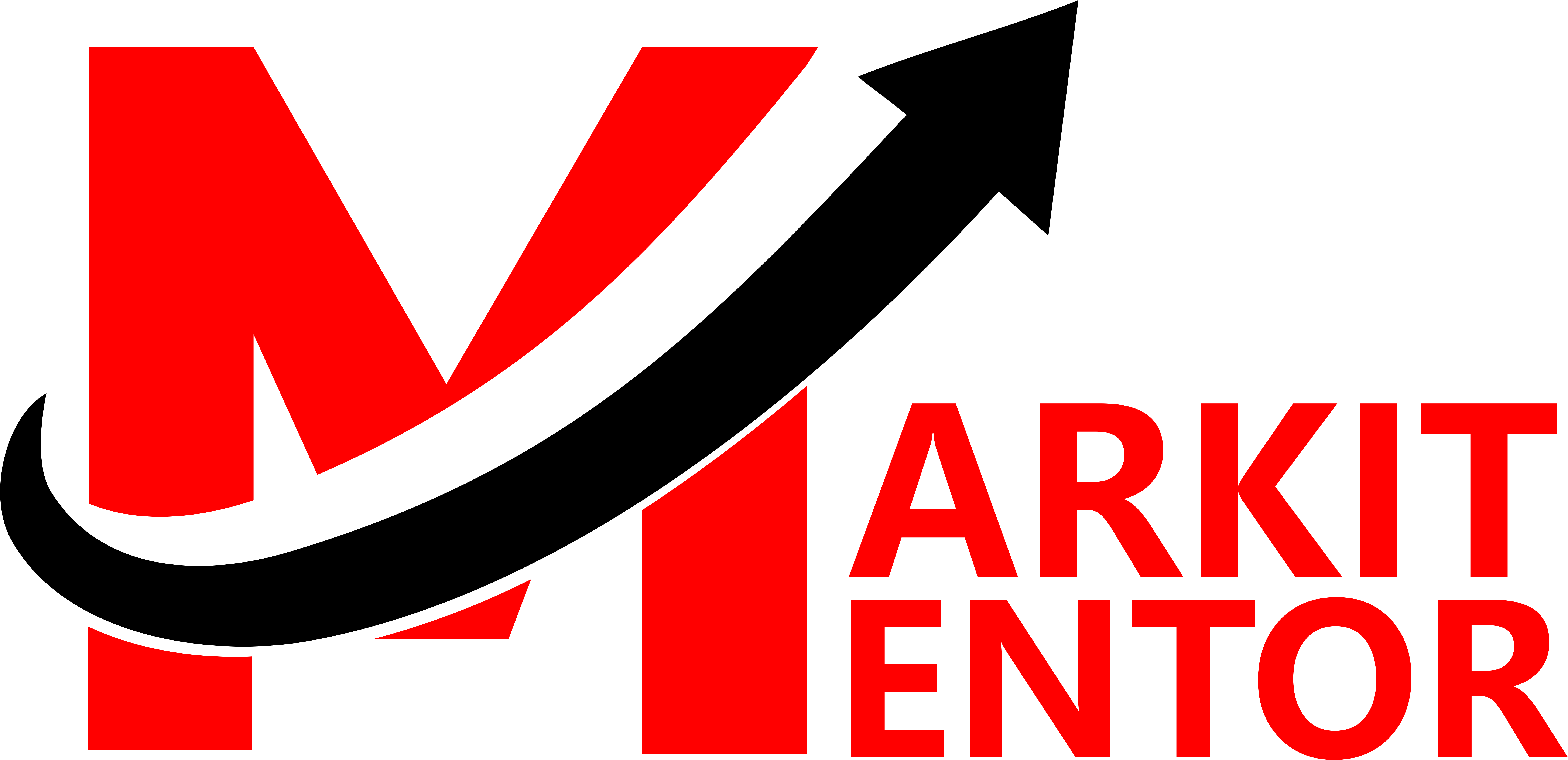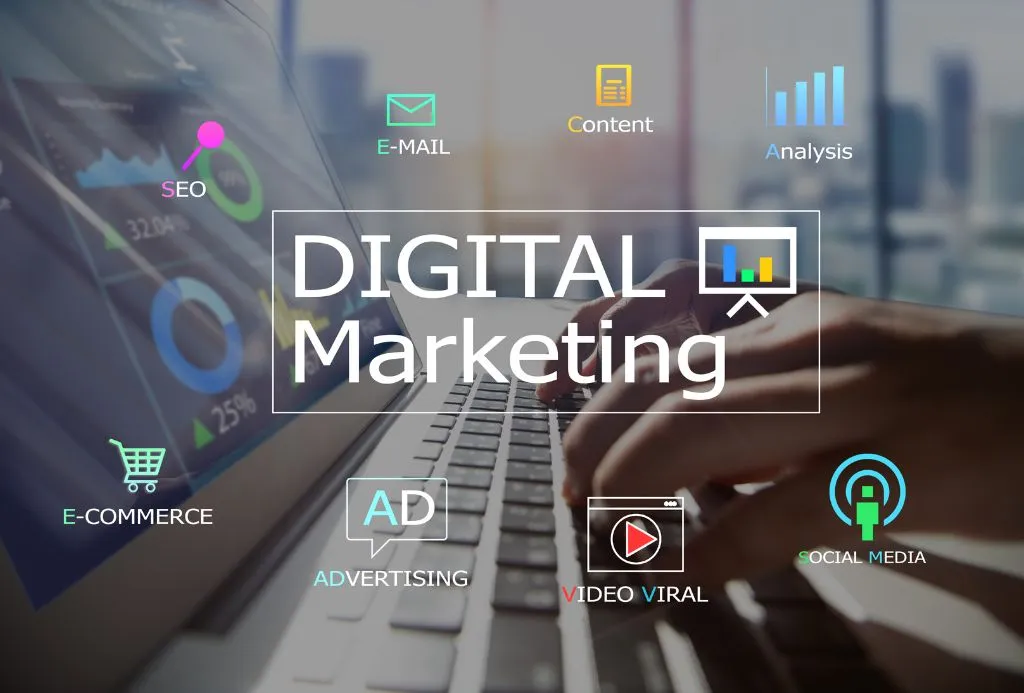In the fast-paced digital age, businesses are constantly seeking innovative ways to reach their target audience effectively and efficiently. Digital marketing has emerged as a powerful tool to achieve this objective. In this blog, we will explore what digital marketing entails, its key components, and the benefits it offers to businesses of all sizes.
What is Digital Marketing?
Digital marketing is an umbrella term that encompasses all marketing efforts that use electronic devices and the internet to promote products or services. Unlike traditional marketing methods, digital marketing leverages various online platforms and tools to connect with potential customers and generate leads.
Some of the fundamental components of digital marketing include:
Search Engine Optimization (SEO): SEO involves optimizing a website’s content, structure, and keywords to improve its visibility on search engine result pages (SERPs). By ranking higher on search engines like Google, businesses can attract organic traffic and increase their online presence.
Pay-Per-Click (PPC) Advertising: PPC advertising allows businesses to display their ads on search engines and social media platforms. Advertisers pay a fee every time their ad is clicked. This method can drive immediate traffic to a website and complement organic SEO efforts.
Content Marketing: Content marketing focuses on creating and distributing valuable, relevant, and consistent content to attract and engage a target audience. Blogs, articles, videos, infographics, and social media posts are all examples of content marketing.
Social Media Marketing: Social media platforms provide an excellent opportunity for businesses to interact with their audience directly. Social media marketing involves creating and sharing content, running ads, and engaging with followers to build brand loyalty and drive website traffic.
Email Marketing: Email marketing involves sending personalized and targeted emails to potential and existing customers. It is an effective way to nurture leads, build customer relationships, and promote products or services.
Influencer Marketing: Influencer marketing leverages the popularity and credibility of influencers to promote products or services. Businesses collaborate with influencers in their niche to reach a wider and more engaged audience.
The Impact of Digital Marketing:
Wider Reach and Audience Targeting: Digital marketing breaks geographical barriers, enabling businesses to reach a global audience. Through audience segmentation and targeting, businesses can tailor their marketing efforts to specific demographics, interests, and behaviors.
Cost-Effectiveness: Compared to traditional advertising, digital marketing campaigns often require lower investments, making it a cost-effective option for businesses, especially startups and small enterprises.
Real-Time Analytics and Data: Digital marketing provides access to real-time analytics and data. Marketers can measure the performance of their campaigns, identify strengths and weaknesses, and make data-driven decisions to optimize their strategies.
Enhanced Customer Engagement: Interactivity on social media and other online platforms allows businesses to engage with customers in real-time, fostering meaningful relationships and building brand loyalty.
Improved Conversion Rates: Digital marketing efforts can lead to higher conversion rates since the marketing messages are targeted and relevant to specific audiences, increasing the likelihood of turning prospects into customers.
Additional Key Components of Digital Marketing:
Search Engine Marketing (SEM): SEM encompasses both SEO and PPC. While SEO focuses on organic search results, SEM also includes paid search advertising. By combining these strategies, businesses can maximize their visibility on search engines and increase their chances of attracting qualified leads.
Mobile Marketing: As mobile devices have become integral to our daily lives, mobile marketing has gained immense importance. Optimizing websites and content for mobile devices ensures a seamless user experience and enhances engagement with the growing mobile audience.
Video Marketing: Video content has emerged as a dominant force in digital marketing. Platforms like YouTube, TikTok, and Instagram offer businesses a chance to engage their audience through captivating videos, tutorials, and behind-the-scenes glimpses of their brand.
Online Reputation Management (ORM): ORM focuses on monitoring and managing a brand’s online reputation. Businesses need to actively respond to customer feedback, reviews, and comments to maintain a positive image and build trust with their audience.
Website Conversion Optimization: Improving website usability and design can significantly impact conversion rates. A well-optimized website ensures a seamless user experience, which can lead to higher customer retention and increased sales.
The Advantages of Digital Marketing:
Measurable Results: Unlike traditional marketing, digital marketing efforts can be easily measured and tracked. Marketers can use various tools and analytics to assess the performance of their campaigns, allowing for continuous improvement and refinement.
Flexibility and Agility: Digital marketing campaigns can be modified quickly in response to changing market conditions and consumer behavior. This flexibility enables businesses to adapt their strategies and stay relevant in dynamic markets.
Global Reach: The internet’s borderless nature enables businesses of all sizes to reach a global audience without physical presence in multiple locations. This accessibility opens up new markets and opportunities for expansion.
Personalization: Digital marketing allows for personalized communication with customers based on their interests, behaviors, and preferences. Tailoring marketing messages to individual customers enhances engagement and fosters stronger connections.
Enhanced Customer Support: Digital platforms enable businesses to provide efficient customer support through chatbots, social media messaging, and email. Prompt responses to queries and concerns contribute to overall customer satisfaction.
Challenges of Digital Marketing:
Intense Competition: The digital landscape is crowded, and businesses face fierce competition for audience attention. Standing out in this environment requires creative and strategic marketing approaches.
Digital Security and Privacy Concerns: With the increased use of data in digital marketing, ensuring the security and privacy of customer information has become a critical issue. Businesses must adhere to data protection regulations and build trust with their audience.
Ad-Blockers and Ad-Fatigue: As ad-blockers gain popularity, reaching audiences with traditional display ads has become challenging. Moreover, customers may experience ad-fatigue if bombarded with repetitive or irrelevant ads.
Conclusion:
Digital marketing has revolutionized the way businesses promote themselves and connect with their target audience. From SEO and PPC to social media marketing and video content, the digital landscape offers a diverse range of strategies to reach and engage potential customers. While it brings numerous advantages like measurable results and global reach, businesses must also navigate challenges such as intense competition and data privacy concerns. By harnessing the power of digital marketing and staying agile in their approach, businesses can thrive in the digital era and build lasting relationships with their customers.
Frequently Asked Questions (FAQs) about Digital Marketing:
Q. What is digital marketing, and how does it differ from traditional marketing?
Digital marketing refers to all marketing efforts conducted through electronic devices and online platforms. Unlike traditional marketing, which relies on offline channels like print media and television, digital marketing leverages the internet and digital technologies to reach and engage target audiences.
Q. What are the main components of digital marketing?
Digital marketing comprises several key components, including search engine optimization (SEO), pay-per-click (PPC) advertising, content marketing, social media marketing, email marketing, influencer marketing, and more. Each component serves a specific purpose in the overall digital marketing strategy.
Q. How does search engine optimization (SEO) contribute to digital marketing success?
SEO is crucial for improving a website’s visibility on search engine result pages (SERPs). By optimizing content and technical aspects of a website, businesses can rank higher on search engines, attract organic traffic, and increase their online presence.
Q. Is digital marketing suitable for all types of businesses?
Yes, digital marketing can benefit businesses of all sizes and industries. Whether you are a startup, small business, or a large corporation, digital marketing offers a cost-effective and efficient way to connect with your target audience and promote your products or services.
Q. How can digital marketing help businesses achieve their goals?
Digital marketing enables businesses to reach a wider audience, increase brand awareness, generate leads, and boost sales. It offers measurable results, allowing businesses to assess the performance of their marketing campaigns and make data-driven decisions for continuous improvement.
Q. What are some challenges businesses may face in implementing digital marketing strategies?
One of the challenges is the intense competition in the digital space. Standing out among numerous online businesses requires unique and engaging content. Additionally, concerns about data privacy and ad-blockers may affect the effectiveness of certain marketing tactics.
Q. Can digital marketing strategies be tailored to specific target audiences?
Absolutely. One of the advantages of digital marketing is the ability to target specific demographics, interests, and behaviors. Through audience segmentation and analytics, businesses can create personalized marketing messages to engage their ideal customers.
Q. How can businesses measure the success of their digital marketing campaigns?
Digital marketing provides access to real-time analytics and data. Businesses can track website traffic, conversion rates, click through rate (CTR), and other key performance indicators (KPIs) to measure the success of their campaigns and make necessary adjustments.
Q. Is digital marketing more cost-effective than traditional marketing?
Yes, digital marketing generally requires lower investments compared to traditional marketing methods. This cost-effectiveness makes it an attractive option, especially for small businesses and startups with limited budgets.
Q. Is it necessary to hire a digital marketing agency or consultant, or can businesses handle it in-house?
The choice depends on the business’s resources and expertise. While some businesses may have the skills and knowledge to handle digital marketing in-house, others may benefit from outsourcing to a specialized digital marketing agency for strategic guidance and implementation.











